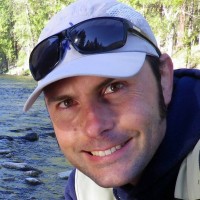François O. Seneca
PhD Graduate
James Cook University

From 2005 to 2022, the main node of the ARC Centre of Excellence for Coral Reef Studies was headquartered at James Cook University in Townsville, Queensland (Australia)








François O. SenecaFrancois completed his PhD at James Cook University (School of Pharmacy and Molecular Sciences, AIMS@JCU, CoE for Coral Reef Studies) and the Australian Institute of Marine Science in 2010, supervised by Prof. David Miller and Dr. Madeleine van Oppen. His thesis research involved the novel use of transcriptomic techniques to address the molecular stress response in corals exposed to natural bleaching conditions, as well as pollutants. While finishing his doctoral work, Francois also participated in several other projects that investigated heat and oxidative stress, immunity, and the establishment of symbiosis in corals in collaboration with Dr. Bill Leggat, Dr. Tracy Ainsworth, and Prof. Bette Willis at JCU. In 2011, he moved to Monterey, California for a postdoctoral position in Prof. Steve Palumbi’s Lab at Hopkins Marine Station of Stanford University. At Hopkins, Francois studied the role of adaptation and acclimatization in the coral response to climate change. Francois recently moved back to Hawai’i, where he graduated with his B.S. in Zoology from the University of Hawai’i at Manoa, to work as a junior researcher with Prof. Robert Richmond at the Kewalo Marine Lab. His research there focuses on the development and validation of a protein biomarker assay for the diagnosis of coral health with the goal to detect sublethal effects of insidious stressors such as pollutants from runoffs. foseneca.com
New DNA techniques are being used to understand how coral reacted to the end of the last ice age in order to better predict how they will cope with current changes to the climate. James Cook Univer
A new study on the effects of climate change in five tropical countries has found fisheries are in more trouble than agriculture, and poor people are in the most danger. Distinguished Profess
James Cook University researchers have found brightly coloured fish are becoming increasingly rare as coral declines, with the phenomenon likely to get worse in the future. Christopher Hemingson, a
Researchers working with stakeholders in the Great Barrier Reef region have come up with ideas on how groups responsible for looking after the reef can operate more effectively when the next bleaching
Abstract: As marine species adapt to climate change, their heat tolerance will likely be under strong selection. Individual variation in heat tolerance and its heritability underpin the potential fo
Abstract: The Reef Ecology Lab in KAUST’s Red Sea Research Center explores many aspects of movement ecology of marine organisms, ranging from adult migrations to intergenerational larval dispersal
Abstract: Macroalgal meadows are a prominent, yet often maligned component of the tropical seascape. Our work at Ningaloo reef in WA demonstrate that canopy forming macroalgae provide habitat for ad
Abstract: Sharks are generally perceived as strong and fearsome animals. With fossils dating back at least 420 million years, sharks are not only majestic top predators but they also outlived dinosa
Abstract: Connectivity plays a vital role in many ecosystems through its effects on fundamental ecological and evolutionary processes. Its consequences for populations and metapopulations have been
Abstract: Evolution of many eukaryotic organisms is affected by interactions with microbes. Microbial symbioses can ultimately reflect host’s diet, habitat range, and even body shape. However, how
Abstract: The past few years have seen unprecedented coral bleaching and mortality on the Great Barrier Reef (GBR) but the consequences of this on biodiversity are not yet known. This talk will expl